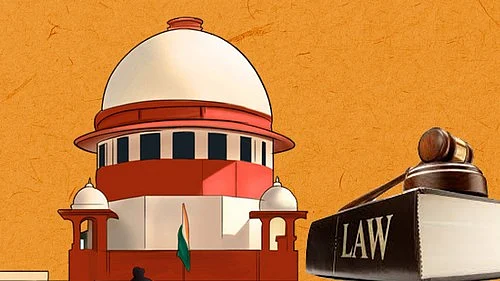SC asks Centre about Kerala, Bengal petitions on governor's assent to bills
The petitions from both states challenge the denial of assent to bills by the respective governors and their referral to the President for consideration

The Supreme Court on Friday, 26 July, sought responses from the central government and the secretaries to the governors of West Bengal and Kerala regarding separate petitions filed by these state governments.
The petitions challenge the respective governors' denial of assent to bills passed by the state legislatures and their referral to the President of India for consideration.
A bench comprising Chief Justice D.Y. Chandrachud, Justice J.B. Pardiwala, and Justice Manoj Misra issued notices to the union ministry of home affairs and the secretaries to both governors.
Senior advocate and former attorney general for India K.K. Venugopal, appearing for Kerala, argued that the state was challenging the governor’s decision to refer the bills to the President.
“There is a confusion in the minds of various governors in the country as to what their powers are in regard to assenting to bills. Currently, out of eight bills, two of them had been kept pending for 23 months; one for 15 months; another for 13 months; and others for 10 months," Venugopal said.
"Now, it is a very sad state of affairs. The Constitution itself is being rendered otiose. Your lordships need to tell the governor as to when they can refuse to assent, when they can refer to the President,” the senior advocate submitted.
While agreeing to issue notice on the petition, the CJI also asked Venugopal and senior advocate Jaideep Gupta (who is appearing for West Bengal in a similar petition) to list out the main issues. Responding, Venugopal said that the petition filed by Kerala has already included these points.
Kerala has contested President Droupadi Murmu's decision to withhold assent for four of the seven bills referred to her by the Kerala governor. In its writ petition filed under Article 32 of the Constitution, the state has also challenged the governor's action of referring the bills to the President. Kerala argues that none of these bills, which pertain to centre–state relations, necessitated presidential assent.
The President withheld assent from four of the bills and approved three other bills on 29 February. Assent was withheld for the following bills:
the University Laws (Amendment) (No. 2) Bill, 2021
the Kerala Co-operative Societies (Amendment) Bill, 2022
the University Laws (Amendment) Bill, 2022
and the University Laws (Amendment) (No. 3) Bill, 2022.
Kerala has argued that no justification was provided for the rejection of the bills.
The state has contended that the Union government's advice to the President to withhold assent on bills passed by the state legislature up to 11–24 months ago, which fell entirely within the state government's jurisdiction, undermines and disrupts the federal structure of Indian governance.
Follow us on: Facebook, Twitter, Google News, Instagram
Join our official telegram channel (@nationalherald) and stay updated with the latest headlines